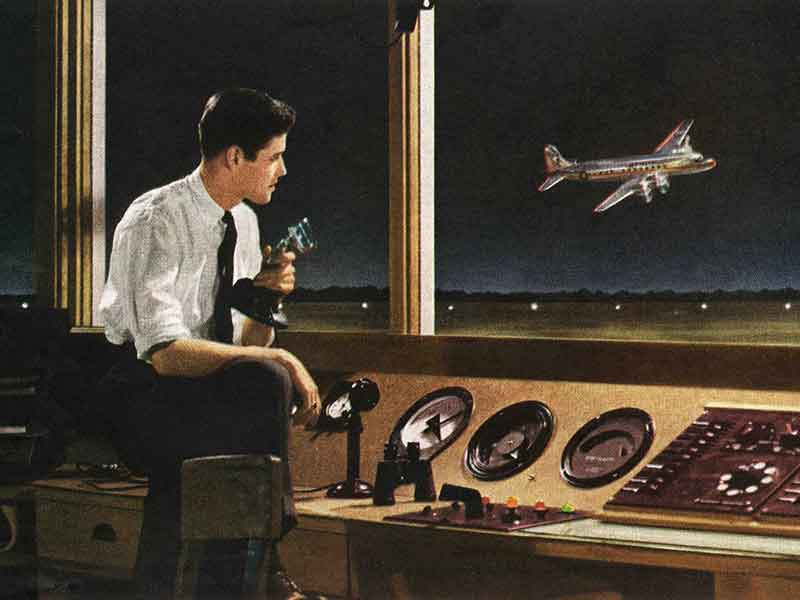Trump moves to privatise US air traffic control
Long circulated in Washington, a plan to privatise the US’ air traffic control system has finally been announced by President Trump

A vintage illustration of an air traffic controller. The Federal Aviation Authority has been criticised for its outdated systems
An initiative to privatise US’ air traffic control operations has been announced by President Donald Trump, with the plan for a non-profit organisation to take the responsibility from the US federal government. The decision may prompt significant changes for businesses keen to utilise drones, particularly for autonomous deliveries.
At a media event, Trump said the US’ current air traffic control system was woefully out of date, and that privatisation would “take American air travel into the future”. While the Federal Aviation Administration (FAA) has recently made efforts to upgrade its network, critics have said the process has taken too far too long, particularly in the shift from radar-based tracking to a GPS system. “Honestly, they didn’t know what the hell they were doing”, Trump said of the FAA.
Trump’s plan would see a private, non-profit corporation operate and manage air traffic control across the entire US. The organisation would be primarily governed by representatives from the US’ major air carriers, though the FAA would retain some oversight.
Privatisation may speed up the process of allowing autonomous drones to operate in US airspace
As reported by NPR, the US air traffic controllers union sees the initiative as generally positive, and may prompt a change for a system it sees as inefficient, while calling for more specific details. A number of the major US carriers, including American Airlines and Southwest Airlines, have also declared their support for the plan.
However, others in the industry have not been as keen. As reported by Bloomberg, groups representing private plane manufacturers have expressed concern smaller airports may be overlooked and see a fall in service. The plan may also struggle to pass Congress, with many Republican lawmakers opposed to the deal.
As noted by Recode, if passed privatisation may speed up the process of allowing autonomous drones to operate in US airspace. Under current regulations established by the FAA, drones can be operated as long as they remain in the pilot’s sight. For fully autonomous systems, like those trialled by Amazon in the UK, new standards need to be established in order to avoid accidents.













